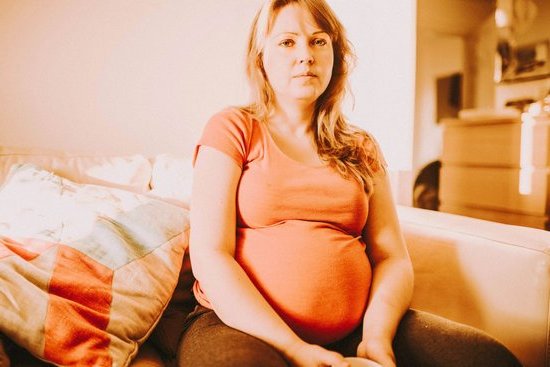Are you an expecting mother looking for safe and healthy food options during pregnancy? In this article, we will explore the safety and benefits of nutritional yeast for pregnant women. Nutritional yeast is a popular ingredient known for its rich nutrient content and savory flavor, making it a great choice for adding extra nutrients to meals.
It has been gaining attention for its potential health benefits, but is it safe to consume during pregnancy? Let’s delve into the details to understand how nutritional yeast can be a valuable addition to the diet of expecting mothers.
Nutritional yeast is a deactivated strain of Saccharomyces cerevisiae yeast, commonly used as a food supplement or flavor enhancer. It is often fortified with essential nutrients such as B vitamins, folic acid, zinc, and protein. These nutrients are especially important during pregnancy as they support the overall health and development of both mother and baby.
However, there are concerns about the safety of consuming nutritional yeast during pregnancy due to potential risks. In the following sections, we will discuss the safety considerations, benefits, risks, and guidelines for incorporating nutritional yeast into a healthy pregnancy diet.
Pregnant women need to pay special attention to their diet to ensure they are getting all the essential nutrients required for a healthy pregnancy. Nutritional yeast can be an excellent source of these vital nutrients, providing pregnant women with added support during this crucial time.
As we continue with this article, we will explore the specific nutrients found in nutritional yeast that are beneficial for expectant mothers and how it can contribute to a well-rounded pregnancy diet plan. Keep reading to learn more about the role of nutritional yeast in supporting maternal and fetal health during pregnancy.
Understanding the Safety of Nutritional Yeast During Pregnancy
Nutritional yeast is a popular food product often used as a cheese substitute for its savory, umami flavor. It is also known for its rich nutritional profile, making it a favorite among health-conscious individuals, including pregnant women. However, there may be concerns regarding the safety of consuming nutritional yeast during pregnancy.
During pregnancy, women are often cautious about their diet and the foods they consume to ensure the safety and well-being of their unborn child. Nutritional yeast is generally regarded as safe for consumption during pregnancy due to its rich nutrient content, including protein, B vitamins, and minerals such as zinc and selenium. These nutrients play a crucial role in supporting the healthy development of the baby and meeting the increased nutritional needs of the expectant mother.
- Protein: Supports fetal growth and development
- B Vitamins: Essential for energy production and the development of the baby’s nervous system
- Zinc: Important for immune function and DNA synthesis
- Selenium: Supports thyroid function and helps protect against oxidative stress
Despite its many benefits, pregnant women should be aware of potential risks associated with consuming nutritional yeast. Some products may contain added ingredients or be fortified with synthetic vitamins that could potentially pose a risk to pregnancy if consumed in excess. Therefore, it is important to choose high-quality, unfortified nutritional yeast from reputable sources to minimize any potential risks.
- Choose unfortified nutritional yeast from reputable sources
- Avoid consuming large quantities of nutritional yeast
- Consult with a healthcare provider before adding nutritional yeast to your diet during pregnancy
Overall, while nutritional yeast can be a valuable addition to a pregnant woman’s diet due to its nutrient content, it is essential to exercise caution and make informed choices when incorporating it into meals. By following recommended guidelines and consulting with healthcare providers if needed, expecting mothers can safely enjoy the benefits of nutritional yeast as part of a balanced and varied diet during pregnancy.
Nutritional Yeast as a Source of Essential Nutrients for Pregnant Women
Nutritional yeast, often referred to as a “superfood,” is a popular ingredient known for its rich nutrient content. It is particularly beneficial for pregnant women as it serves as an excellent source of essential nutrients necessary for the health and development of both the mother and the growing baby. Here, we will explore the key nutrients found in nutritional yeast that make it a valuable addition to the diet of expecting mothers.
Folic Acid
One of the most important nutrients found in nutritional yeast is folic acid. This B-vitamin is crucial for preventing neural tube defects in babies and promoting healthy brain development. Pregnant women are advised to ensure they have an adequate intake of folic acid, and nutritional yeast can be a convenient way to meet this requirement.
Protein
Protein is essential for supporting the growth and development of the baby, as well as maintaining the overall health of the mother during pregnancy. Nutritional yeast contains a high amount of protein, making it an ideal choice for vegetarian or vegan expecting mothers who may struggle to get enough protein from other sources.
B Vitamins
In addition to folic acid, nutritional yeast is also packed with other B vitamins such as thiamine, riboflavin, niacin, and vitamin B6. These vitamins play a vital role in energy production, brain function, and overall health, making them especially important during pregnancy. With its abundance of B vitamins, nutritional yeast can help support the increased energy needs of expectant mothers and aid in fetal development.
By incorporating nutritional yeast into their diets, pregnant women can benefit from these essential nutrients that are crucial for a healthy pregnancy and optimal fetal development.
Potential Risks of Consuming Nutritional Yeast During Pregnancy
While nutritional yeast is generally considered safe for consumption, there are a few potential risks that pregnant women should be aware of. It’s important to understand these risks in order to make an informed decision about whether or not to include nutritional yeast in your diet during pregnancy.
1. Added Sodium: Some brands of nutritional yeast may contain high levels of sodium, which can contribute to water retention and potentially increase blood pressure. Pregnant women are already at risk for high blood pressure, so it’s essential to monitor sodium intake from all sources, including nutritional yeast.
2. Allergies: While allergic reactions to nutritional yeast are rare, they can occur. If you have a known allergy to yeast or mold, it’s recommended to avoid consuming nutritional yeast during pregnancy to prevent any adverse reactions.
3. Fortification Concerns: Nutritional yeast is often fortified with various vitamins and minerals, such as B vitamins and folic acid. While these fortifications can be beneficial for pregnant women, it’s important to be mindful of the overall amount of these nutrients consumed from all sources to avoid excessive intake, which could potentially pose risks.
It’s crucial for pregnant women considering the inclusion of nutritional yeast in their diet to consult with their healthcare provider before doing so. This will allow for a personalized assessment of individual health status and dietary needs.
Remember that every woman’s pregnancy is unique, and what works for one woman may not work for another. Always prioritize your health and seek professional guidance when making decisions about your diet during pregnancy.
Recommendations and Guidelines for Safe Consumption of Nutritional Yeast
During pregnancy, it is essential to pay close attention to the foods you consume, ensuring they are safe and beneficial for both you and your baby. Nutritional yeast can be a great addition to a pregnant woman’s diet, but it is important to follow certain recommendations and guidelines to ensure safe consumption.
Consult Your Healthcare Provider
Before adding nutritional yeast or any new food to your diet during pregnancy, it is crucial to consult with your healthcare provider. They can provide personalized recommendations based on your individual health status and any specific dietary needs you may have. Your healthcare provider can also advise on the appropriate amount of nutritional yeast to consume during pregnancy.
Choose Fortified Nutritional Yeast
When purchasing nutritional yeast, look for brands that are fortified with essential nutrients such as B vitamins, including B12. These nutrients are important for the healthy development of the baby and can help supplement a pregnant woman’s diet. Additionally, fortified nutritional yeast can contribute to overall maternal health during pregnancy.
Moderation Is Key
While nutritional yeast can offer numerous benefits during pregnancy, it should be consumed in moderation. As with any food, excessive intake may lead to potential adverse effects. Incorporating a moderate amount of nutritional yeast into meals will help you enjoy its benefits without overdoing it.
Following these recommendations and guidelines can help expecting mothers safely incorporate nutritional yeast into their diet during pregnancy, reaping its many benefits without compromising their health or the health of their baby. Always remember to prioritize having open communication with your healthcare provider when making changes to your diet during pregnancy.
Delicious Nutritional Yeast Recipes for Expecting Mothers
Nutritional yeast is not only safe to consume during pregnancy but can also be a valuable addition to the diet of expecting mothers due to its numerous health benefits. It is a great source of essential nutrients, including protein, B vitamins, and minerals like zinc and selenium. These nutrients are crucial for the healthy development of the fetus and can help expecting mothers maintain their own health during pregnancy.
Incorporating nutritional yeast into recipes can be a delicious way for pregnant women to enjoy its benefits. One popular way to use nutritional yeast in cooking is by making “cheesy” dishes without actually using cheese, which can be high in fat and sodium.
For example, nutritional yeast can be used to make a dairy-free “cheese” sauce that can be poured over pasta or used as a dip for vegetables. Another option is to sprinkle it on popcorn or homemade kale chips for a flavorful and nutrient-packed snack.
| Recipe | Ingredients |
|---|---|
| Dairy-Free Mac and Cheese | Organic elbow macaroni, cashews, almond milk, nutritional yeast, garlic powder, onion powder, Dijon mustard |
| Vegan Cheesy Popcorn | Popped popcorn kernels, olive oil, garlic powder, smoked paprika, nutritional yeast |
| Cheesy Kale Chips | Fresh kale leaves, olive oil spray, Himalayan salt, lemon juice, nutritional yeast |
These recipes not only provide pregnant women with essential nutrients but also offer a tasty alternative to traditional cheesy dishes while being mindful of their overall health and wellness during pregnancy. By incorporating these recipes into their meal plans or snacks regularly while following recommended guidelines for consumption of nutritional yeast during pregnancy ensures both safety and enjoyment.
Conclusion
In conclusion, nutritional yeast can be a safe and beneficial addition to the diet of pregnant women. With its rich source of essential nutrients such as vitamin B12, folic acid, and protein, it can help support the health and development of both mother and baby. However, it is important for expecting mothers to be aware of the potential risks associated with consuming nutritional yeast during pregnancy, particularly those related to food safety and allergies.
While nutritional yeast is generally considered safe for pregnant women, it is important to exercise caution and moderation in consumption. It is recommended to consult with a healthcare provider before incorporating nutritional yeast into your diet during pregnancy, especially if you have any concerns or preexisting medical conditions.
Overall, when consumed responsibly and in adherence to guidelines, nutritional yeast can provide expecting mothers with a delicious and nutritious way to enhance their meals. From adding a cheesy flavor to vegan dishes to boosting the nutrient content of soups and salads, there are numerous ways for pregnant women to enjoy the benefits of nutritional yeast in their diet while prioritizing the safety of themselves and their developing baby.
Frequently Asked Questions
Is Eating Yeast Safe During Pregnancy?
Eating yeast during pregnancy can be safe, as long as it is a nutritional yeast that has been pasteurized. Nutritional yeast is often fortified with folic acid, which is important for pregnant women. However, it’s always best to consult with a healthcare provider before making any significant changes to your diet during pregnancy.
Who Should Not Eat Nutritional Yeast?
People who have a sensitivity or allergy to yeast should avoid nutritional yeast. Additionally, those who are undergoing treatment for certain medical conditions, such as autoimmune diseases, should consult with their healthcare provider before incorporating nutritional yeast into their diet.
Is Nutritional Yeast Pasteurized?
Nutritional yeast is typically pasteurized during the production process to deactivate the yeast and prevent it from leavening in the body. This means that most commercial nutritional yeast products are safe to consume without the risk of experiencing an overgrowth of yeast in the body.
However, it’s always best to check product labels or contact the manufacturer if you have specific concerns about pasteurization.

Welcome to my fertility blog. This is a space where I will be sharing my experiences as I navigate through the world of fertility treatments, as well as provide information and resources about fertility and pregnancy.





